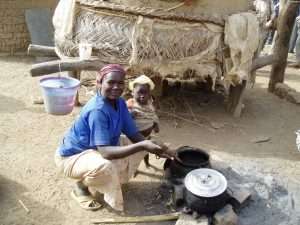Tunisia’s fragile finances amidst bread crisis

Rising temperatures and intensifying drought conditions in Tunisia have led to a significant decline in the country’s wheat production, leading to increased reliance on imports and further straining the government’s fragile finances, reports Reuters on May 25th.
Though there hasn’t been adequate rainfall in Tunisia for the past 3 years, farmer Hasan Chetoui, remarked that the circumstances of this drought have had exponentially worse effects. Adding to the already precarious situation, authorities have been unable to distribute water due to years of drought emptying reservoirs and forcing the implementation of water rationing. Consequently, numerous farmers, including Chetoui, have suffered significant losses in their wheat production.
READ: Tunisian president takes stand against bread crisis instigators
Bakeries across Tunisia have been forced to close their doors or significantly reduce bread production. Outside of the few bakeries still open, long lines of people wait to buy what bread is left available.
The bread crisis in Tunisia has also taken a severe toll on the government, as it grapples with the urgent need to import 95% of its grains. On average, Tunisia consumes approximately 3.4 million tons of grain each year, while this year’s projected production is a mere 250,000 tons. The disparity between demand and domestic production paints a bleak picture for the country’s food security.
READ: Tunisia: Saied rejects IMF loan conditions
This alarming situation has unfolded against the backdrop of the Tunisian government facing a crisis of its own, asking for billions of dollars of support from the International Monetary Fund. Further exacerbating the financial challenges faced by the state, the Tunisian government seems to be cognizant of absorbing higher import costs as to not invoke the memory of the deadly bread riots in 1983-84.
President Kais Saied has attributed the bread crisis and ongoing financial challenges in Tunisia to the shortcomings of previous administrations and what he refers to as “criminal networks.”
READ: Tunisian droughts reach new crisis level, threaten food security
Want to chase the pulse of North Africa?
Subscribe to receive our FREE weekly PDF magazine














